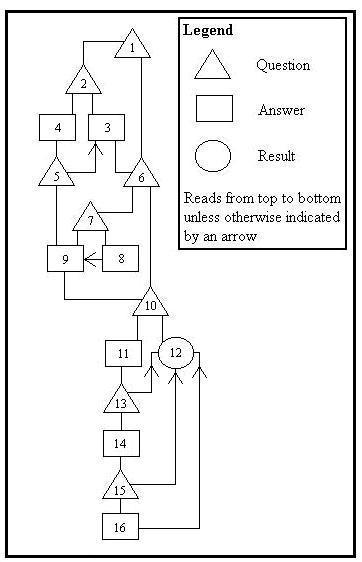
So, there you are, merrily putting in place the plans that will ensure the smooth development of your plutocracy and making the world safe for transnational capitalism when a silly scandal threatens all of your hard-earned work.. What's a despot wannabe to do?
Believe it or not, there is a simple formula for dealing with administration-threatening scandals. Simply follow the simple algorithm below, and you will be back to invading foreign countries and kneecapping the poor in no time!

| 1 | Is the crisis being fueled by a leak from a government source? | |
| YES | 2 | Is the identity of the whistleblower known? |
| YES | 3 | Do whatever you can to destroy the credibility of the whistleblower. Tactics may include, but are not limited to: revealing the whistleblower's legal history; revealing the whistleblower's financial history; revealing the whistleblower's medical history; releasing rumours, innuendo and half-truths about the whistleblower's legal history; releasing rumours, innuendo and half-truths about the whistleblower's financial history; releasing rumours, innuendo and half-truths about the whistleblower's medical history. |
| NO | 4 | State publicly that you do not respond to anonymous allegations, put pressure on the news organization to reveal its source and/or quietly put together an internal investigation to uncover the identity of the whistleblower. |
| 5 | Has the whistleblower been found yet? | |
| YES | Go to 3 | |
| NO | Go to 9 | |
| 6 | Is there a hole in the story, no matter how minor? | |
| YES | 7 | Is there corroborating evidence from other news organizations? |
| YES | 8 | Ignore it. |
| NO | 9 | Make the news organization the story: demand an immediate retraction, a profuse apology and as many resignations as you calculate your righteous indignation will be good for. (The closer the article is to the truth, the more righteous indignation you should apply.) It helps to accuse the news organization of being part of a "Liberal media conspiracy" with a vendetta against your government. |
| 10 | Could this scandal seriously damage the credibility of your government? | |
| YES | 11 | Allow that these are serious allegations, and that your government will conduct an internal investigation into their validity. |
| NO | 12 | Hold a press conference where you stress your government's successes (real or imagined) and your bold vision for moving ahead in the future. If the subject of the scandal is brought up, make a flip remark or tasteless joke and quickly move on to another subject. Continue in this vein until the scandal has been forgotten - two or three days in 2005 public outrage terms. |
| 13 | Does the internal investigation mollify your administration's critics? | |
| YES | Go to 12 | |
| NO | 14 | Announce that the allegations are so serious - and that you are treating them as such - that you will allow an independent investigator to look into them. Make sure that the investigator is a close personal friend of the administration, the parameters of the investigation are so narrowly defined that he will not be able to uncover any information relevant to the allegations and/or that the investigation is given a long enough deadline that everybody will have forgotten the allegations by the time it issues its final report. |
| 15 | Does this finally mollify those pesky critics of yours? | |
| YES | Go to 12 | |
| NO | 16 | Hold a press conference in which you declare that you are as concerned as anybody about the serious allegations made against your government and that you are doing all you can to get to the bottom of them. Add that anybody who suggests otherwise is playing partisan politics. |
Notes
Certain assumptions are built into the Bush administration's crisis management algorithm. A more or less compliant press, for instance, is crucial to the smooth running of the algorithm. The algorithm takes into account the unfortunate possibility that an individual journalist is competent and willing to do her job; if, however, a substantial number of journalists are, this algorithm will likely prove insufficient to keep them in line. Under such circumstances, applying the Manipulation of Fear Algorithm may be required to bring them back in line. Tempted as you may be to employ it, remember that the Threatening To Take Over of the Press Algorithm has fallen into disuse, since, paradoxically, it was employed mainly by dictatorships who really took over the press and, therefore, didn't need to resort to threats.
In addition, the algorithm runs better for scandals that are abstract and/or complex (government financial corruption, for example, or the slow erosion of civil rights coupled with a concentration of power in the executive branch). If you do something concrete and simple that is guaranteed to alienate voters (ie: spitting on a Bible while roasting a baby on a spit) you're on your own.